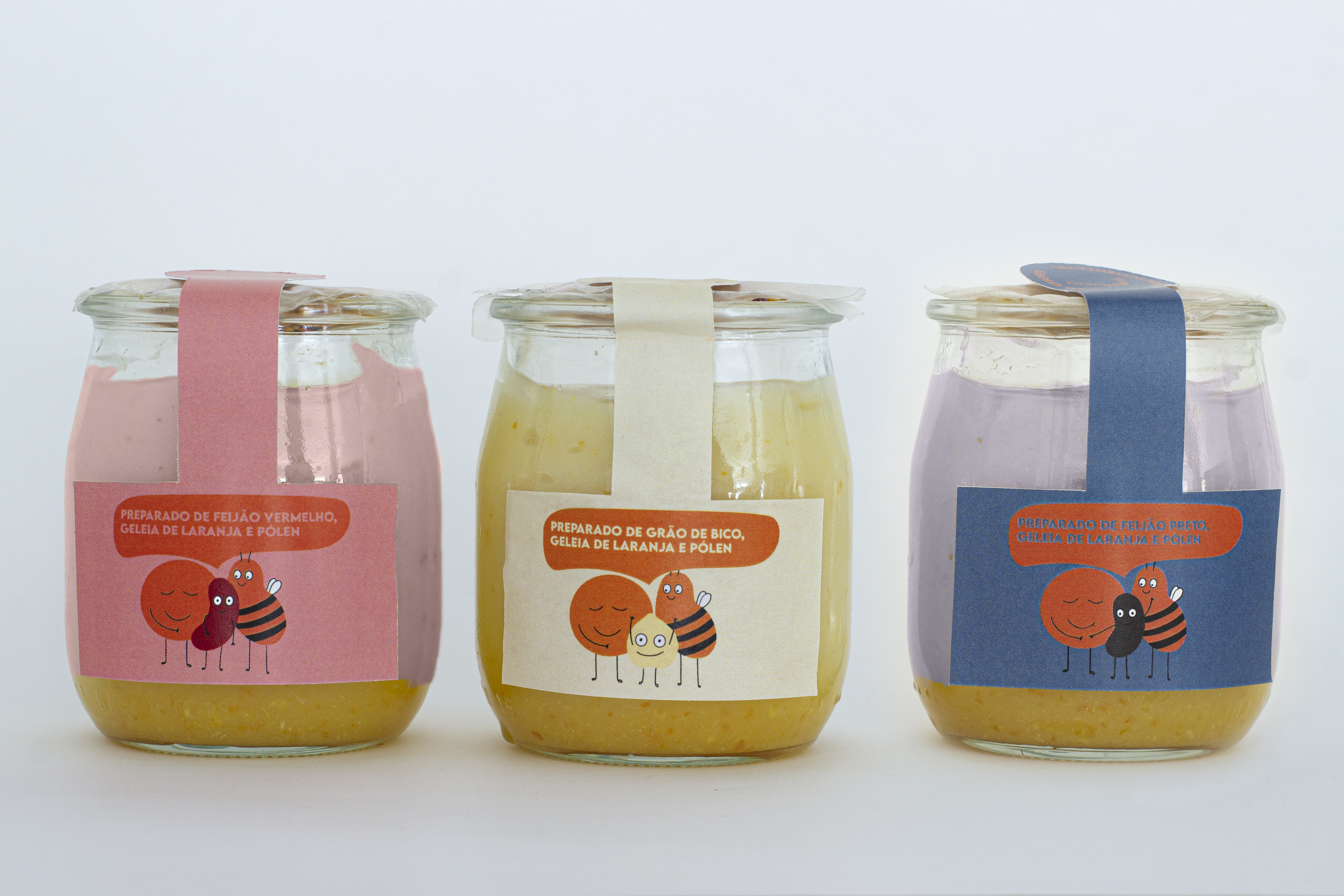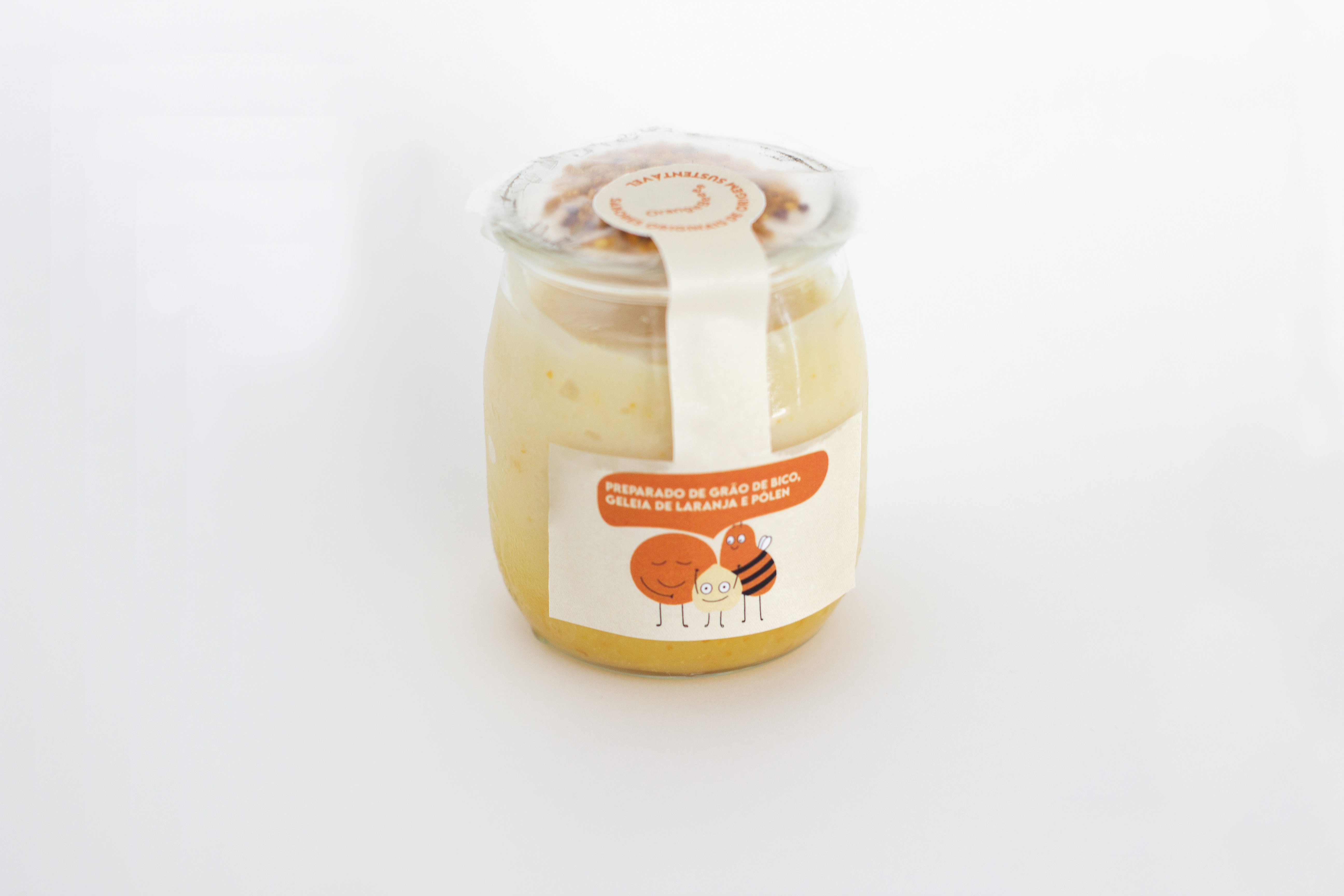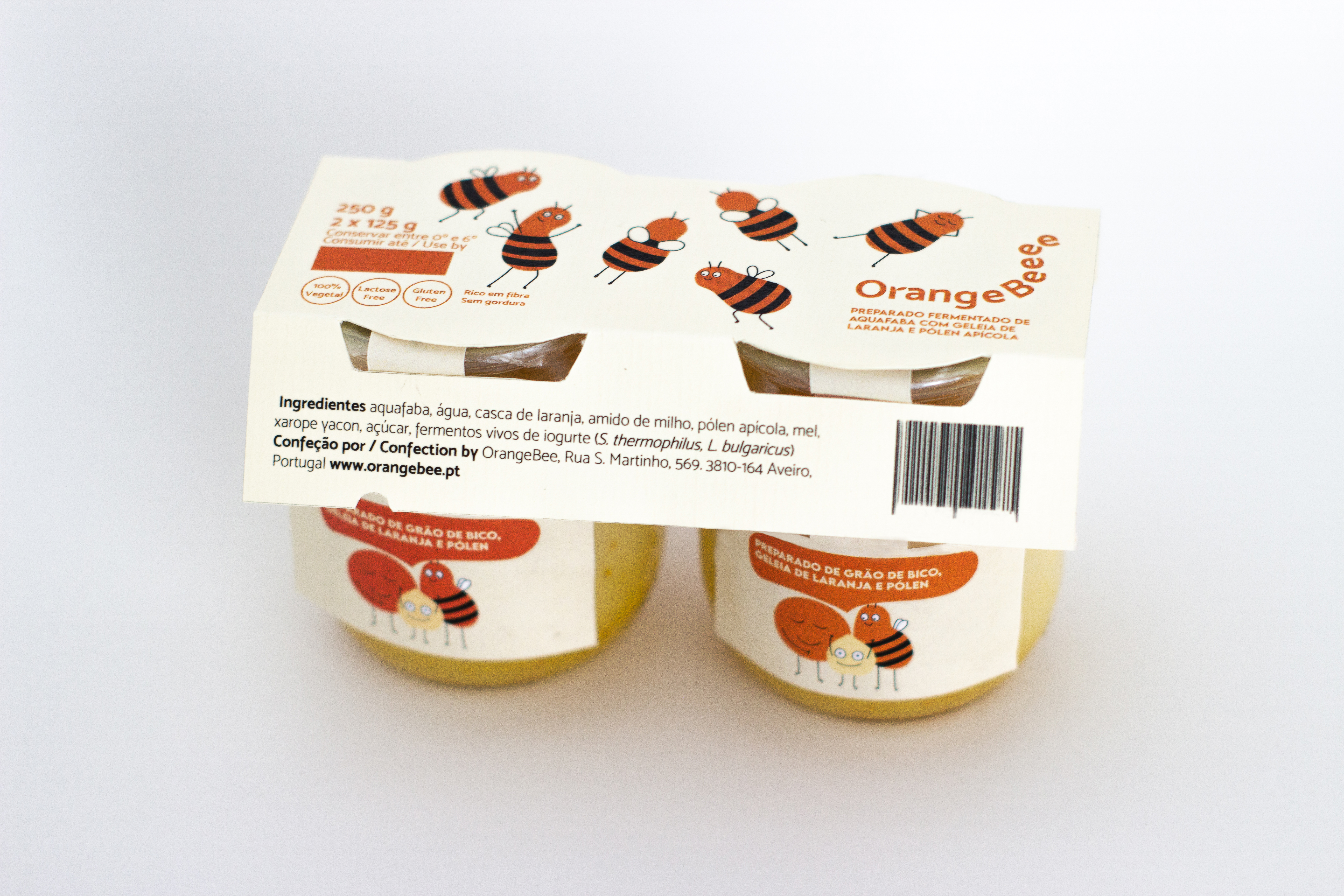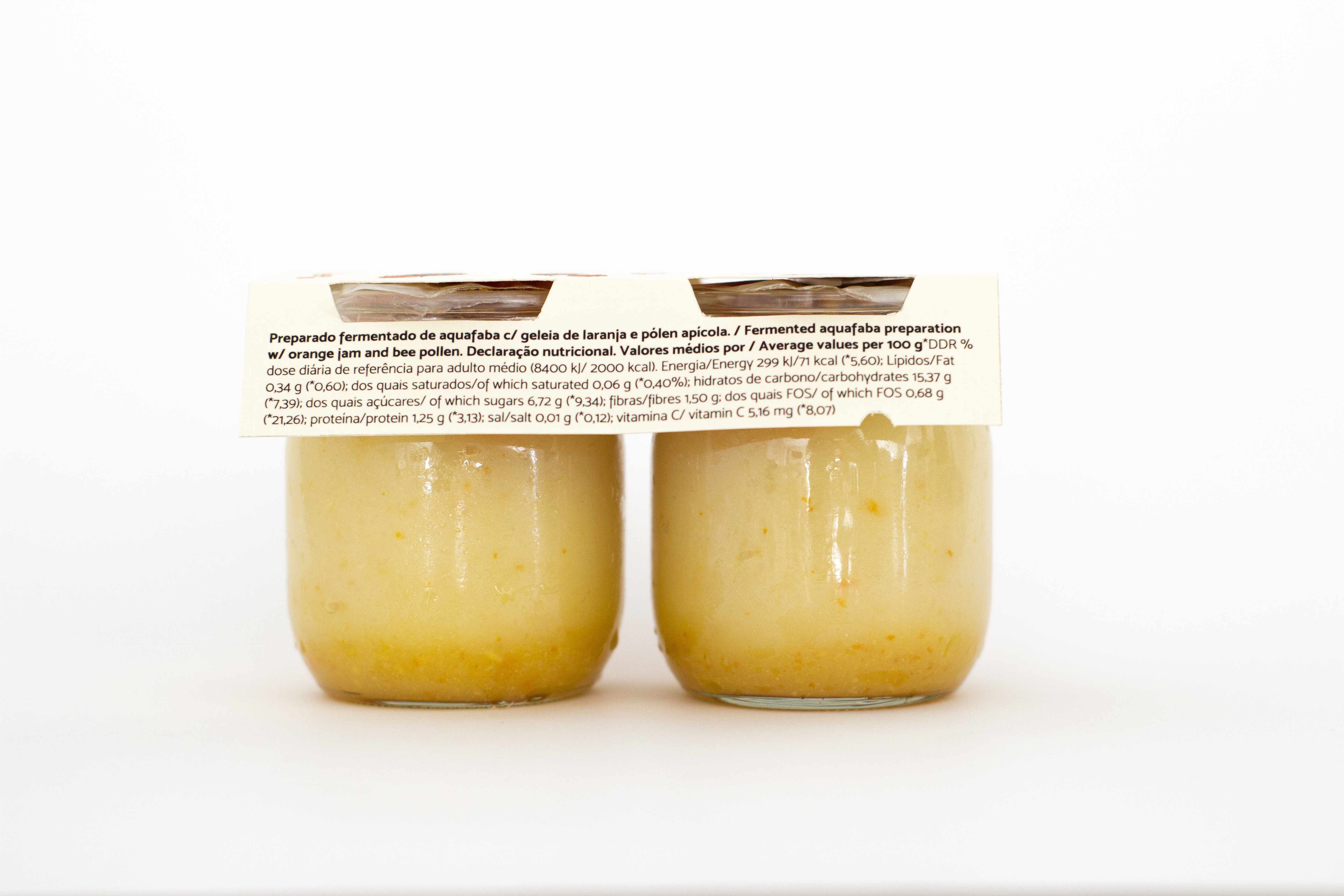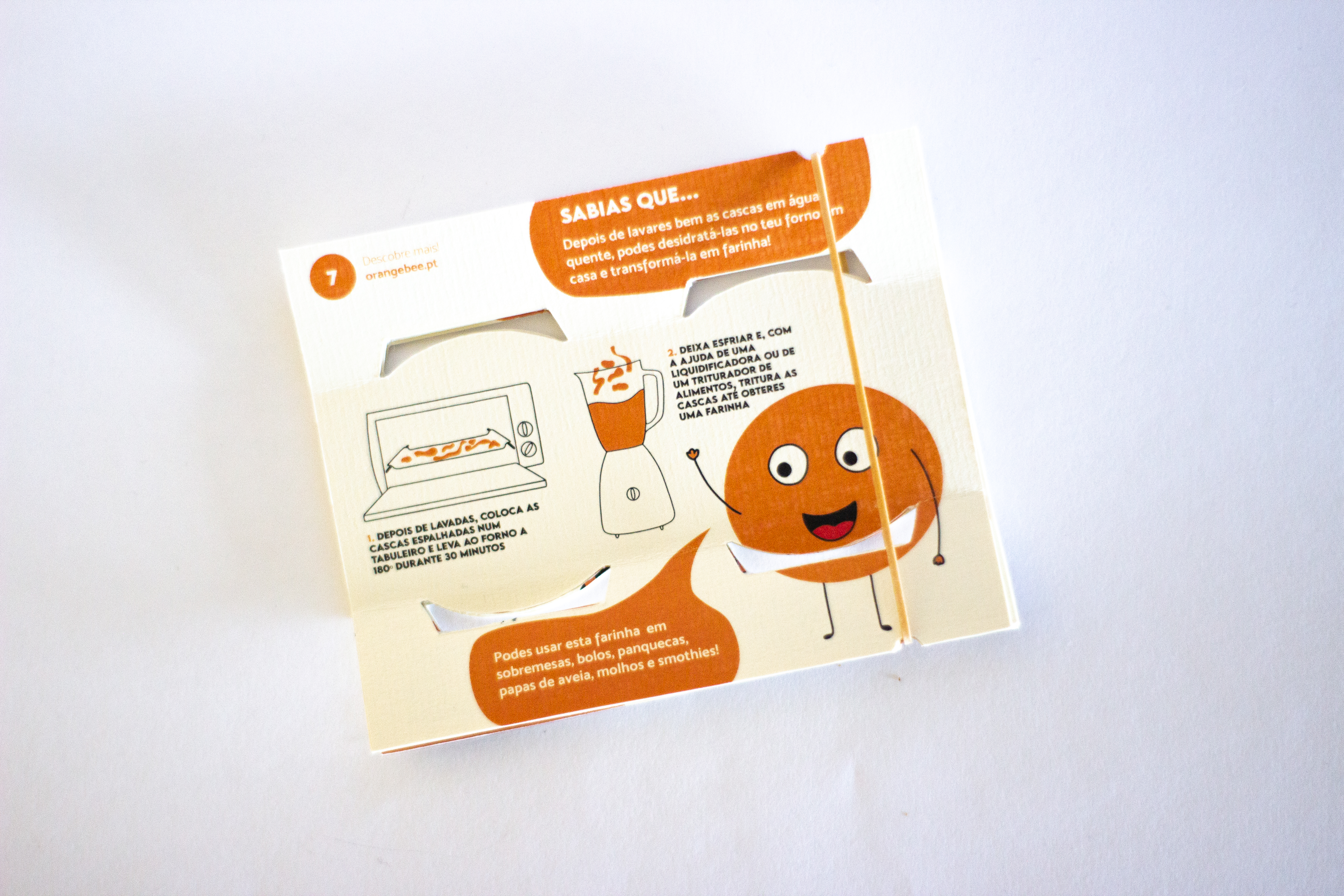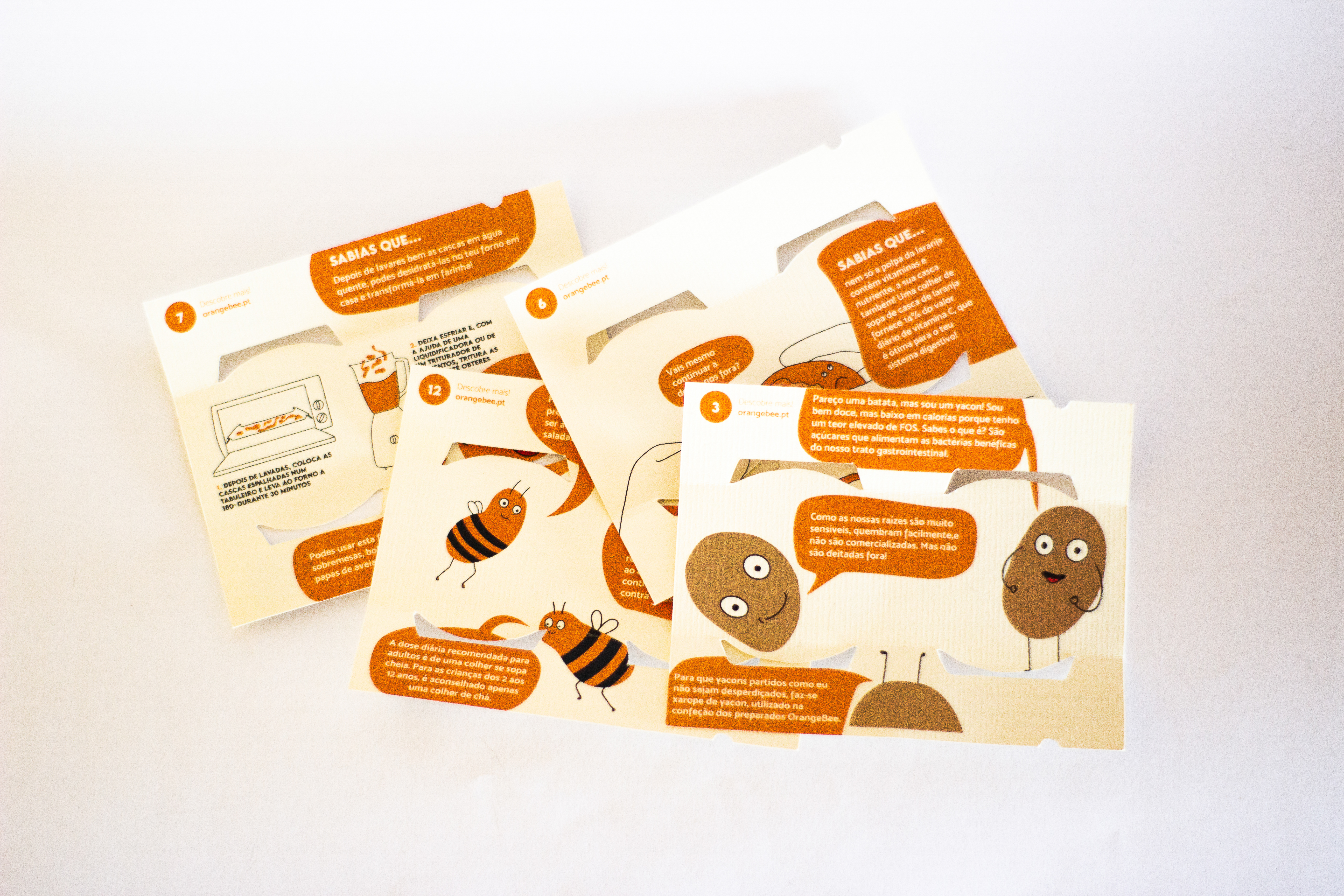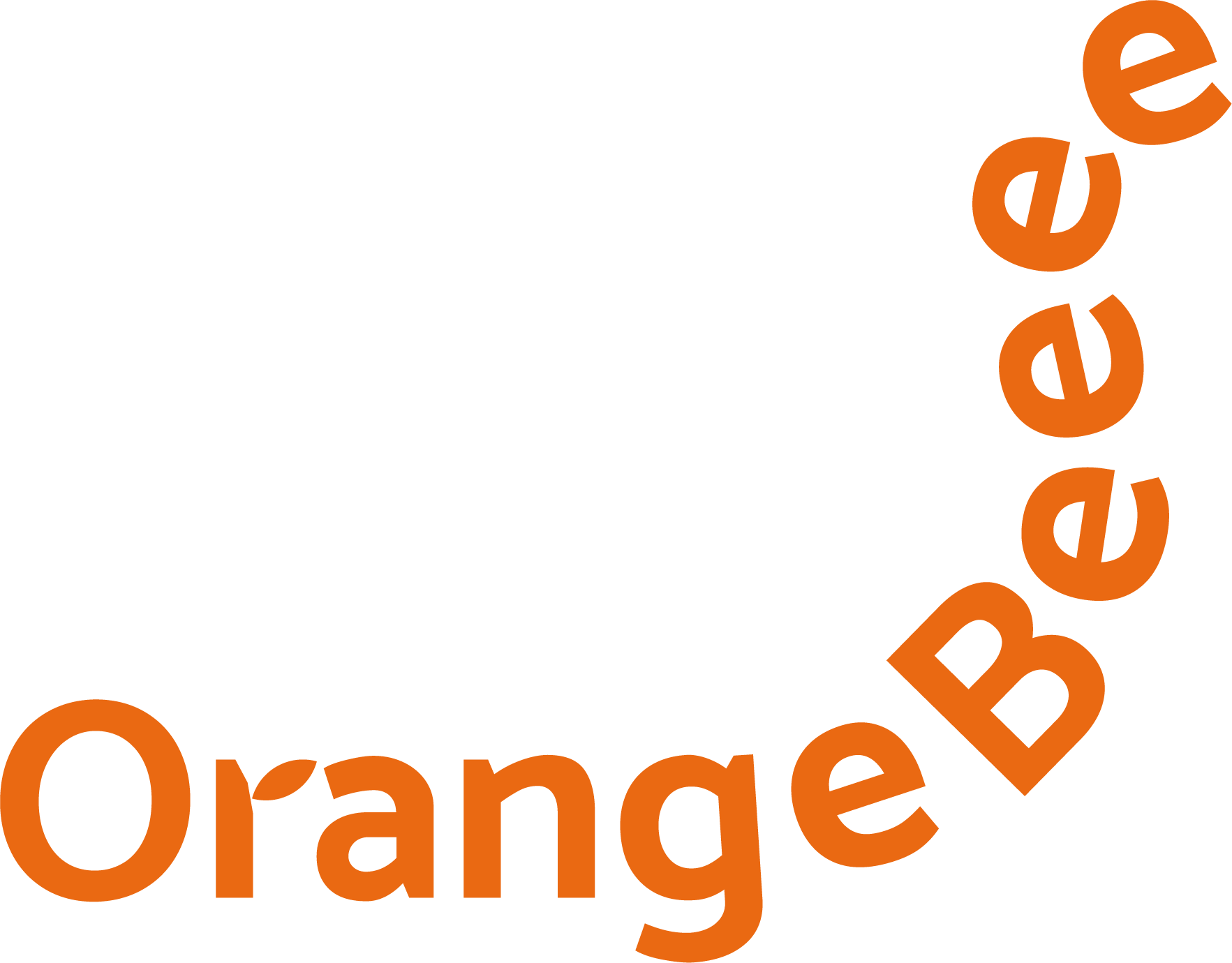
University of Aveiro, 2020
Master’s thesis
Advisor professor: Prof. Cláudia Albino
The food development of the OrangeBee product is the result of a collaboration with Adelaide Olim, a Master's student in Food Biotechnology and the following professors of The Chemistry Departament: Prof. Manuel António Coimbra and Prof. Elisabete Coelho
Awards
Ecotrophelia Portugal 2020
Ecotrophelia Europe 2021
And The Winner Is, 2021 (Individual Award, Research category)
Publications
“OrangeBee: design contribution to the consumption of food waste in Portuguese culture”
(Universidade de Aveiro, 2020)
“OrangeBee, contribuição do food design para o consumo de desperdícios alimentares da cultura portuguesa”
(Cadernos de Temas Contemporâneos em Design 2021)
“Contribution of Food Design for the consumption of food waste from Portuguese food culture”
(Food Design 2021 - 9º Encontro Latino Americano de Food Design)
In this Master’s thesis, the role of Design as a cultural and information mediator and the use of food as a Design tool are stated. The research aims to contribute by design to the use of parts of food that are wasted because they are culturally rejected in Portugal. Exploring qualitative research methodologies, through literature review we studied and problematized, in the context of the subject under study, the concepts of activist design, sustainability, food waste, Mediterranean diet and Food Design. Through an exploratory graphic exercise, the introductory project “All you can eat” was developed, which consisted of a campaign to enhance the fruit peels that are normally rejected in Portuguese gastronomic culture in order to demystify the nutritional value of these foods considered, by many people, to be waste. Through action research, a sensory experience was developed with orange peels and “Kitchen Laboratories I and II”, which culminated in the development of the fermented preparation OrangeBee, a food product resulting from the multidisciplinary work shared between Design and Food Biotechnology.
This product is part of the organoleptics of the Mediterranean diet from by-products of national industries, and was created to be sold in large commercial areas, which implied a study of market trends, the development of the brand and packaging, the development of its communication and dissemination, and marketing and economic plans. The results we obtained with the validation of the product allowed us to conclude that it is possible to contribute, by design, to a beneficial diet for people's health, which is both sustainable and with reduced environmental impact, through the use of food as a whole, both industrial level, as well as the dissemination of these habits at the domestic level. In this way, value is added to flavors already appreciated in Mediterranean culture, not forgetting their origins. In the project, in addition to concerns about environmental sustainability and respect for the planet's resources and the health of consumers, we concluded through the development of market and economic analysis, market progress, strategy, segmentation and brand positioning, that the economic sustainability of a food product is necessary for it to remain positively on the market.
